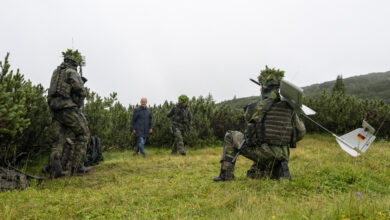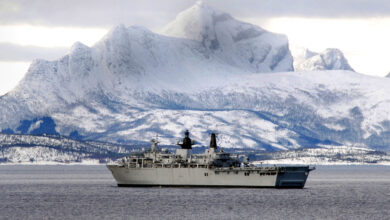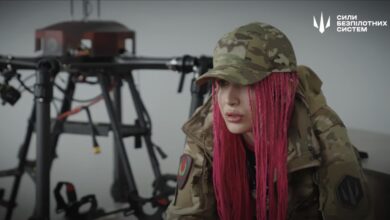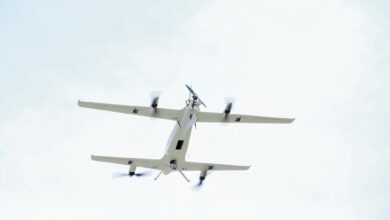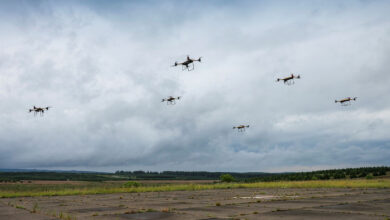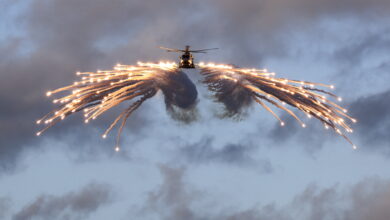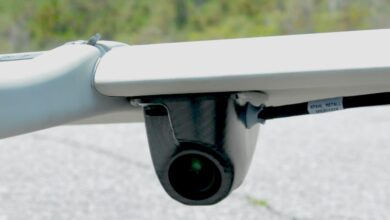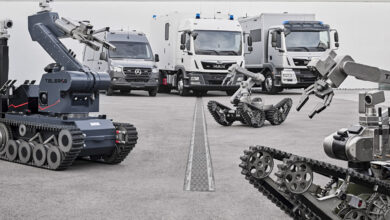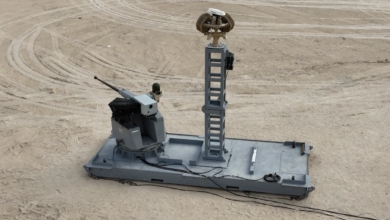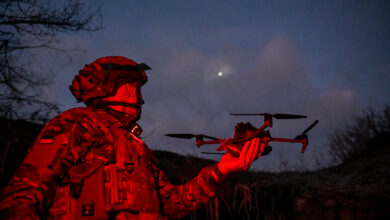The Royal Navy has launched and recovered its largest uncrewed aircraft on an aircraft carrier, heralding “the next generation of UK naval air power.”
A remotely-operated Mojave drone took off and landed on board HMS Prince of Wales off the US East Coast, demonstrating the teaming potential of manned and unmanned aircraft.
A glimpse into the future…
The largest drone launched from a UK aircraft carrier (@HMSPWLS) could pave the way for tomorrow's naval air power.
Aircraft similar to the uncrewed Mojave could fly on missions alongside traditional machines.https://t.co/SHMzhfrzPi pic.twitter.com/aTVr63QEVf
— Royal Navy (@RoyalNavy) November 17, 2023
Europe’s First
It was the first time an uncrewed aircraft of Mojave’s size operated from an aircraft carrier outside of the US, the service stated.
“The Mojave trial is a European first – the first time that a remotely piloted air system of this size has operated to and from an aircraft carrier outside of the United States,” Royal Navy Director Develop Rear Admiral James Parkin said.
“The success of this trial heralds a new dawn in how we conduct maritime aviation and is another exciting step in the evolution of the Royal Navy’s carrier strike group into a mixed crewed and uncrewed fighting force.”

Mojave Drone
The General Atomics drone is much bigger than the uncrewed aircraft the service has previously operated from its ship, such as the hand-launched Puma and the new Peregrine helicopter.
Weighing over 1.5 tons fully loaded, the 9-meter-long (29.5 feet) aerial platform has a wingspan of 17 meters (56 feet), six meters wider than an F-35B fighter.
The MQ1C Gray Eagle variant is adapted for short take-off and landing and can perform long endurance missions at medium altitude.
Demonstration to Determine Future Scope
General Atomics was contracted for the trial, which will “determine the future scope to address a number of capability problem sets and will support future investment decisions,” the UK Ministry of Defence stated earlier this year.
It is part of an effort to further integrate drones into the service’s platforms, including plans to raise a second air wing on both aircraft carriers.
The Royal Navy’s Second Sea Lord, Vice Admiral Martin Connell, said embracing autonomy was “the next logical step to ensuring that the Royal Navy can continue to fight and win in an increasingly-complex operating environment.”
“With so many international partners interested in the results of these Mojave trials on board HMS Prince of Wales, I am delighted that we are taking the lead in such exciting and important work to unlock the longer-term potential of the aircraft carrier and push it deep into the 21st Century as a highly-potent striking capability,” he said.



